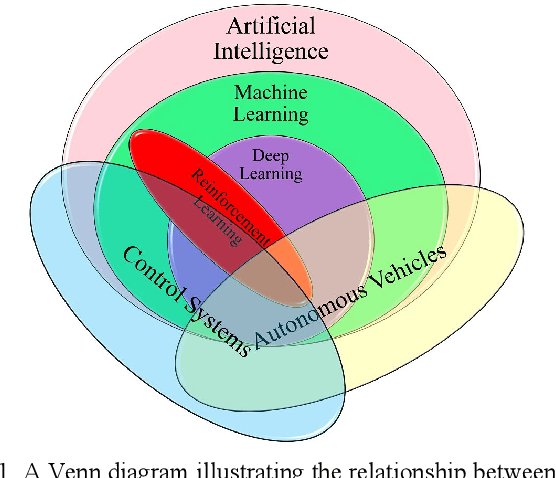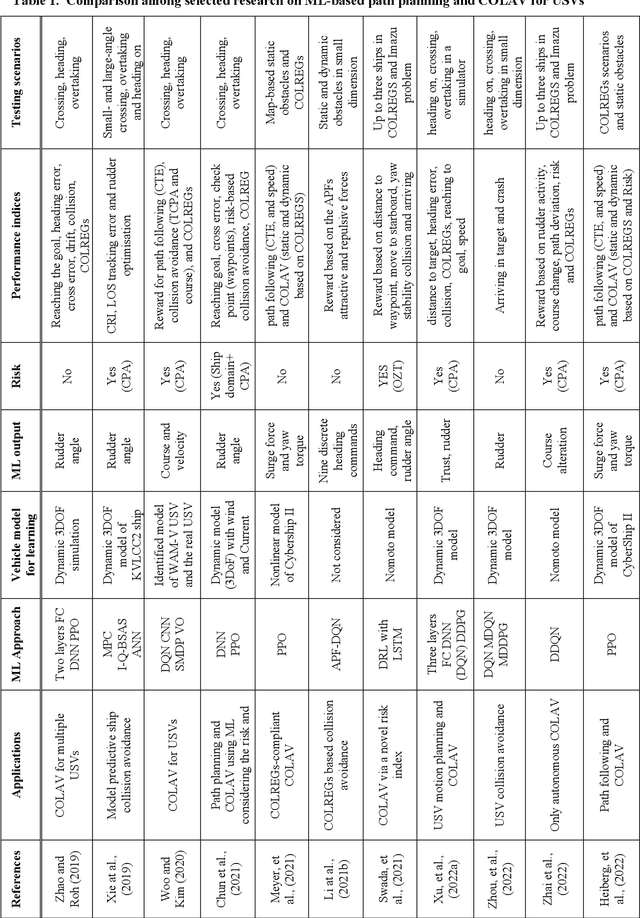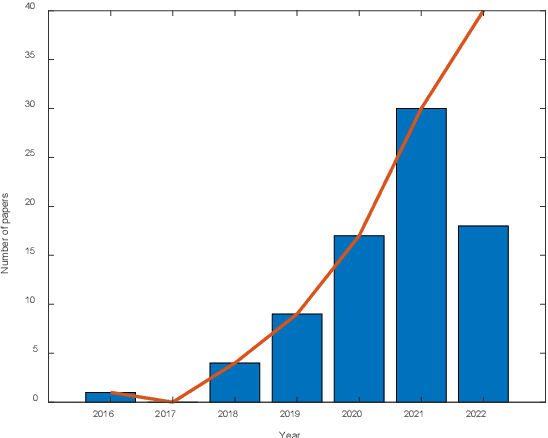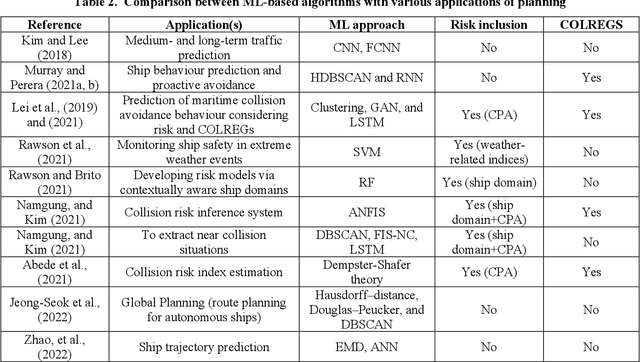A Survey of Recent Machine Learning Solutions for Ship Collision Avoidance and Mission Planning
Paper and Code
Jul 15, 2022



Machine Learning (ML) techniques have gained significant traction as a means of improving the autonomy of marine vehicles over the last few years. This article surveys the recent ML approaches utilised for ship collision avoidance (COLAV) and mission planning. Following an overview of the ever-expanding ML exploitation for maritime vehicles, key topics in the mission planning of ships are outlined. Notable papers with direct and indirect applications to the COLAV subject are technically reviewed and compared. Critiques, challenges, and future directions are also identified. The outcome clearly demonstrates the thriving research in this field, even though commercial marine ships incorporating machine intelligence able to perform autonomously under all operating conditions are still a long way off.
 Add to Chrome
Add to Chrome Add to Firefox
Add to Firefox Add to Edge
Add to Edge